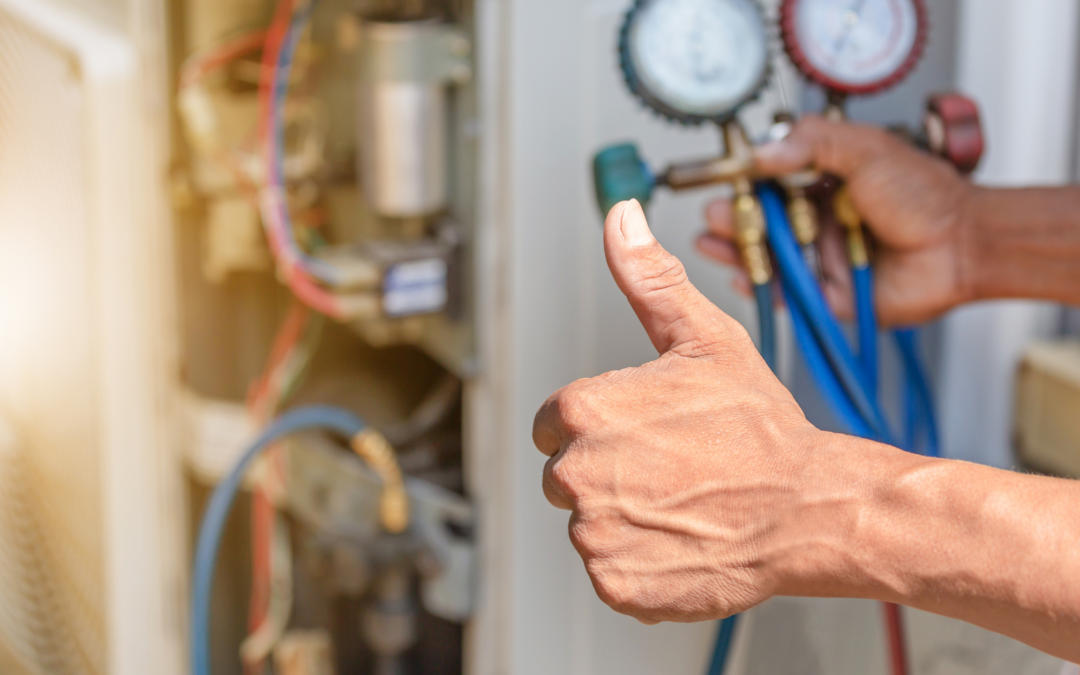A comfortable and energy-efficient home is a top priority for homeowners. Upgrading to a high-efficiency HVAC (Heating, Ventilation, and Air Conditioning) system can offer numerous benefits, including cost savings, improved indoor air quality, and a reduced environmental impact. In this blog, we will explore the features and benefits of high-efficiency HVAC systems, including cost savings, improved indoor air quality, enhanced comfort and performance, and their positive impact on the environment. We will also discuss factors to consider when choosing the right system and highlight real-life examples of homeowners who have made the switch.
Understanding High-Efficiency HVAC Systems
A high-efficiency HVAC (Heating, Ventilation, and Air Conditioning) system is designed to optimize energy usage and minimize waste, resulting in lower energy consumption and reduced environmental impact. These systems incorporate advanced technologies and features that improve their performance and energy efficiency compared to standard HVAC systems. High-efficiency systems are engineered to consume less energy while providing the same or better level of heating and cooling performance. They achieve this through the use of advanced components, such as variable-speed motors and compressors, which adjust their output based on the specific heating or cooling needs of the space.
High-efficiency HVAC systems are typically rated using metrics such as SEER (Seasonal Energy Efficiency Ratio), EER (Energy Efficiency Ratio), and Energy Star. Higher SEER and EER ratings indicate greater energy efficiency, meaning that the system can provide the same level of cooling or heating while consuming less energy. Energy Star certifications mean the system meets strict criteria set by the federal government to perform the same or better than typical HVAC systems while being energy efficient.
By upgrading to a high-efficiency HVAC system, homeowners can experience significant benefits, including lower energy bills, improved indoor air quality, enhanced comfort, and a reduced carbon footprint.
Cost Savings
Lower Energy Bills
High-efficiency systems are designed to consume less energy while delivering the same or better heating and cooling performance. This reduction in energy consumption translates into lower utility bills over time. The exact amount of savings will depend on factors such as the efficiency of the system, local energy prices, and usage patterns. On average, homeowners can expect to save 20-30% on their annual energy bills compared to older, less efficient systems.
These systems often incorporate sophisticated control systems that allow for precise temperature regulation and zoning. This enables homeowners to optimize energy usage by directing conditioned air only to the areas that need it, rather than cooling or heating the entire home unnecessarily. High-efficiency systems also may feature improved insulation in their ductwork and components, reducing energy losses during the distribution of heated or cooled air.
Tax Credits and Rebates
In many regions, there are tax credits, rebates, or other incentives available for upgrading to high-efficiency HVAC systems. These incentives can significantly offset the upfront costs and provide additional savings.
Long-Term Return on Investment (ROI)
The long-term return on investment (ROI) of a high-efficiency HVAC system can vary depending on factors such as the initial cost of the system, energy prices in your region, and usage patterns. However, in general, investing in a high-efficiency HVAC system can yield significant long-term savings.
High-efficiency HVAC systems are typically built to higher quality standards and incorporate advanced technologies. As a result, they often have longer lifespans than standard systems. This means that you can enjoy energy savings and comfort benefits for an extended period before needing to replace the system. These systems also often require less maintenance and experience fewer breakdowns compared to older systems, which can result in lower maintenance and repair costs over time.
Analyzing the potential savings over the system’s lifespan helps homeowners make informed decisions.
Improved Indoor Air Quality
Indoor air quality is extremely important for the health and wellness of all occupants of a home, from children to pets.
High-efficiency systems often incorporate advanced air filtration technologies, such as high-efficiency particulate air (HEPA) filters or electrostatic filters, which can effectively capture a wide range of allergens, dust particles, and pollutants. This improves indoor air quality and contributes to a healthier living environment.
Maintaining optimal indoor humidity levels is crucial for comfort and health. The optimal indoor humidity level is between 30-50% for not only health but the integrity of your home’s structure. High-efficiency systems often include features that regulate humidity, creating a more comfortable indoor environment. Improved indoor air quality provided by high-efficiency systems can have positive effects on respiratory conditions and overall well-being, reducing allergies and respiratory discomfort.
Enhanced Comfort and Performance
High-efficiency HVAC systems offer precise and even heating and cooling throughout the home, ensuring consistent comfort in every room. They are designed to optimize airflow and ensure even distribution of conditioned air throughout the home to help eliminate hot or cold spots and enhance overall comfort.
Noise pollution, in addition to being annoying, can be damaging over time. Compared to older systems, high-efficiency HVAC systems operate at lower noise levels, providing a quieter and more peaceful living environment. Lower noise pollution in the home can lead to health benefits such as lowering blood pressure, anxiety, and agitation.
The control systems of high-efficiency HVAC systems allow for precise temperature regulation and zoning. If one person in the home prefers it to be cooler while another person prefers it to be warmer, each can have it the way they want in the area in which they spend their time. Not only does this provide physical comfort, but it also helps to end arguments over the thermostat, which can be priceless.
Environmental Impact
High-efficiency HVAC systems contribute to reducing the household carbon footprint by consuming less energy. This helps mitigate the environmental impact of residential energy consumption. Household carbon footprints are a major source of greenhouse gas emissions, which are the biggest contributors to climate change.
Decreased energy consumption by high-efficiency systems reduces the strain on natural resources, promoting sustainability and conservation efforts. Energy efficiency is integrated into battling climate change, and high-efficiency HVAC systems tackle a major source of household energy consumption. High-efficiency HVAC systems also often utilize environmentally friendly refrigerants that have a lower impact on the ozone layer and global warming potential compared to older refrigerants.
Choosing the Right High-Efficiency HVAC System
When selecting a high-efficiency system, factors such as size, efficiency rating, features, and budget should be taken into account. Properly sizing the system is crucial for optimal performance and energy efficiency. Seeking guidance from HVAC professionals like Planet Connection is important for ensuring the proper selection and installation of a high-efficiency system. Their expertise will help homeowners make informed decisions and achieve the desired results.
Upgrading to a high-efficiency HVAC system offers a range of benefits for homeowners. From cost savings and improved indoor air quality to enhanced comfort and a reduced environmental impact, the advantages are significant. By considering the long-term advantages, consulting with professionals, and exploring available options through Planet Connection, homeowners can take action toward a more comfortable, energy-efficient, and sustainable home.


Recent Comments